IGLUNA Field Campaign 2021 Completion: The First Large-Scale Step towards Autonomous Swarming Rovers
28 July 2021 | Eureka T. Maharani
After one year of working hard and semi-remotely, Lunar Zebro’s journey on the IGLUNA 2021 Field Campaign has been adjourned. Adjourned, not ended, as the team will resume this journey as soon as we return to our home base in Delft.
“To push the boundaries of Autonomous Swarm Robots,”
said our Communication and Sponsoring Lead Jillian Oduber when presenting our goal at IGLUNA to ESA Director General Josef Aschbacher and Swiss Space Office representative Johann Richard. The objective of the Zebro rovers at IGLUNA was to safely explore an unknown area autonomously at Krienseregg, our testbed on Mount Pilatus, where they would locate and identify arbitrarily placed targets. The rovers and docking stations were built from scratch for the IGLUNA Field Campaign. The docking stations serve as a place to recharge and shelter the Zebros from unfavourable weather, if needed. They also provide a data relay channel between the rovers and the Ground Segment, in which an artificial delay is induced to recreate the communication conditions for an actual Moon mission.
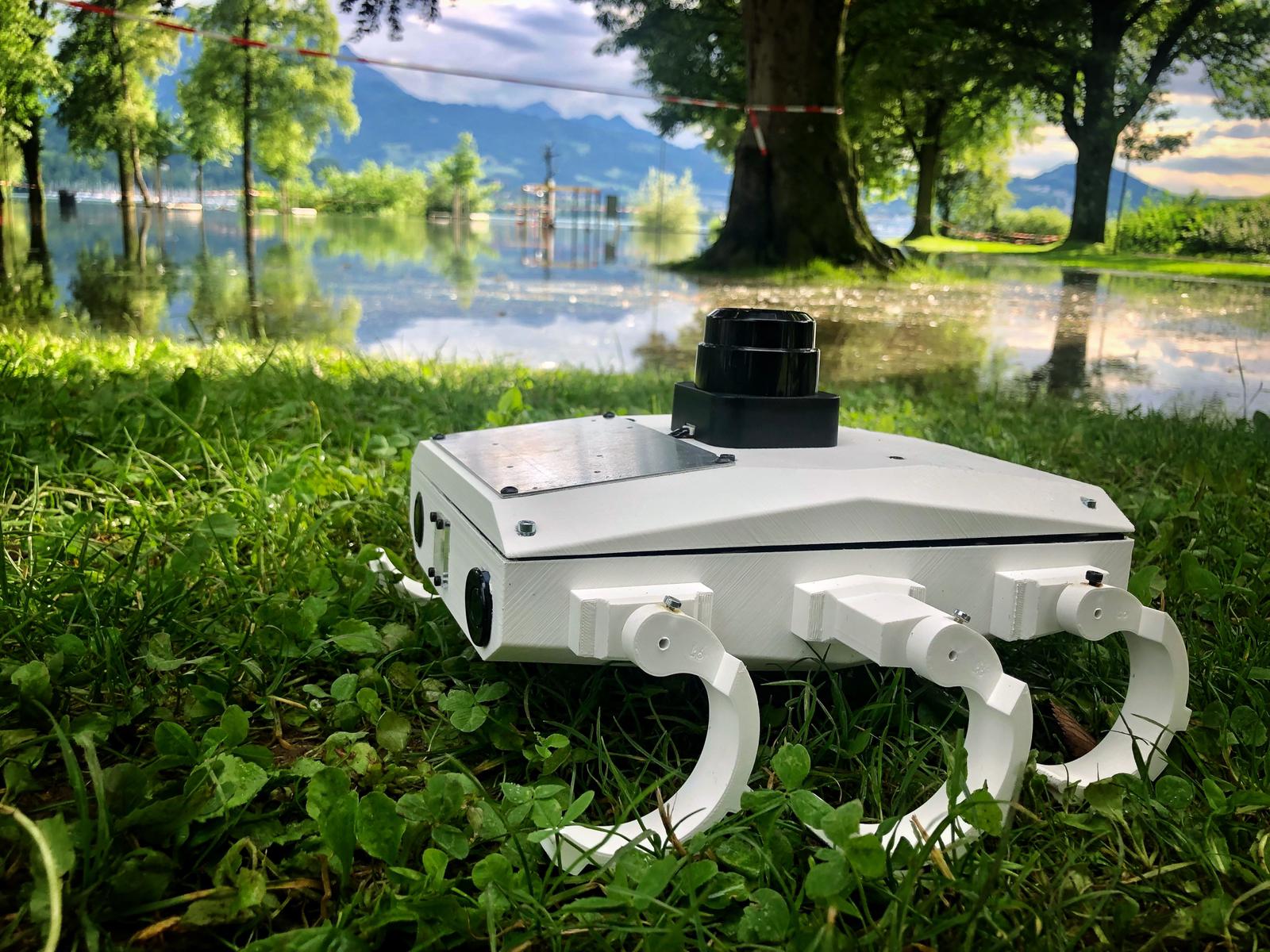
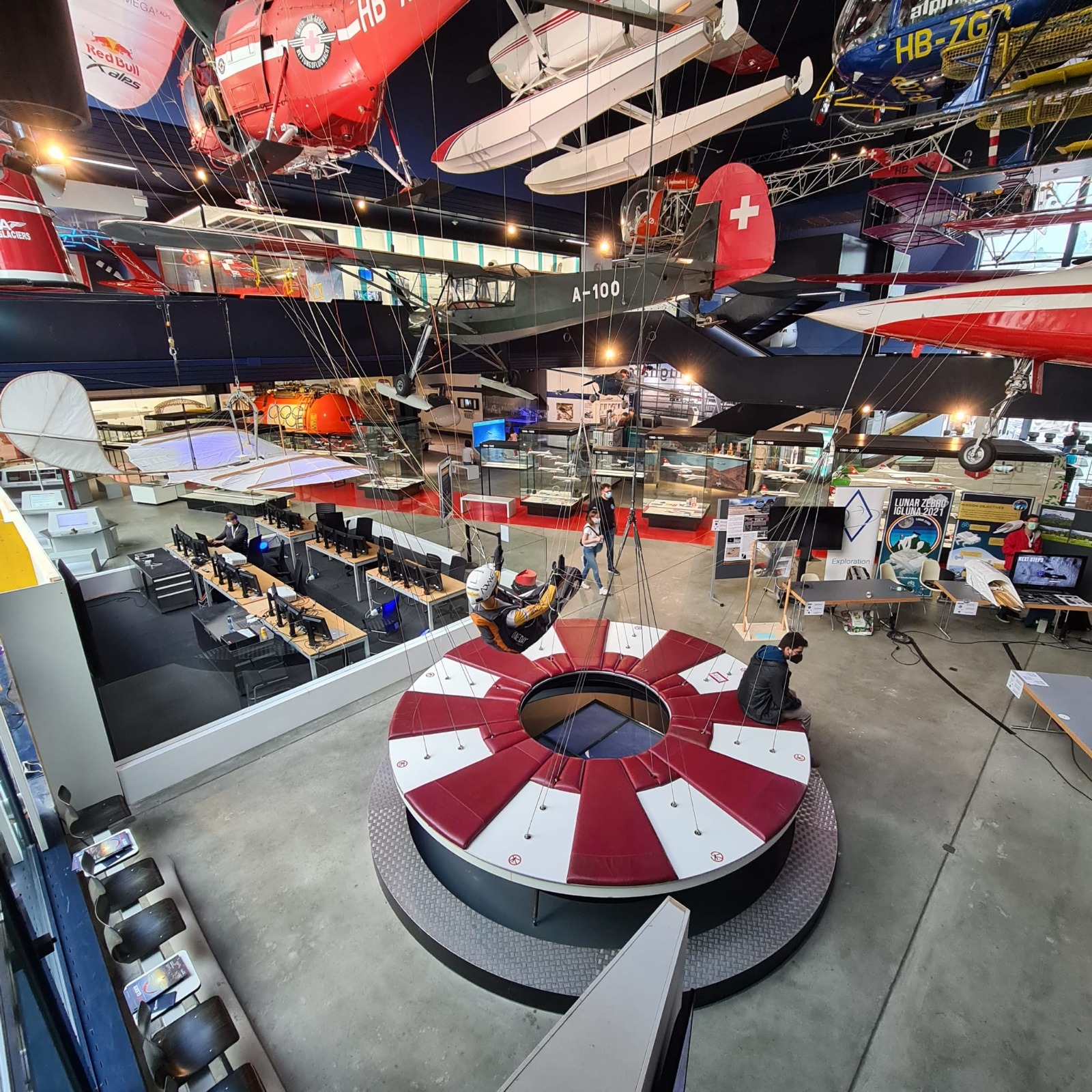
Coming together in Luzern
Together with 11 other student teams from around the world, the Lunar Zebro team began assembly and testing in the exquisite mountainous vicinity of Luzern, Switzerland. Along with the testbed at Krienseregg, the team operated at the Swiss Museum of Transport (Verkehrshaus) to present the project in the Exhibition Hall and monitor the rovers through the facilities in the Control Room. “They [Lunar Zebro] did a great job connecting with visitors and inspiring children to learn more about lunar exploration”, remarked IGLUNA Implementation Officer and team coach Maria Oreshenko during the closing ceremony.
Coming together in Luzern
Together with 11 other student teams from around the world, the Lunar Zebro team began assembly and testing in the exquisite mountainous vicinity of Luzern, Switzerland. Along with the testbed at Krienseregg, the team operated at the Swiss Museum of Transport (Verkehrshaus) to present the project in the Exhibition Hall and monitor the rovers through the facilities in the Control Room. “They [Lunar Zebro] did a great job connecting with visitors and inspiring children to learn more about lunar exploration”, remarked IGLUNA Implementation Officer and team coach Maria Oreshenko during the closing ceremony.

One setback; immeasurable learning experiences
Almost all singular objectives were met; a distributed algorithm for the Zebro swarm was developed, waypoints for external applications were able to be identified, remote operations from Delft Control Room were demonstrated, the Ground Segment and docking stations were fully operational, and the first Zebros were walking on the testbed! Unfortunately, the team fell on hard times; the motor drivers were malfunctioning, causing the rover’s motors to become damaged and therefore the locomotion to be hampered. To prevent further loss of motors, it was decided to suspend further assessment and investigation of the root cause, as not enough resources were available at this point. Since locomotion is the glue that links all aspects together, most of the integration and system testing, such as the interaction between the rovers and docking stations, and the intricate navigation algorithm of the rovers during IGLUNA was no longer possible.
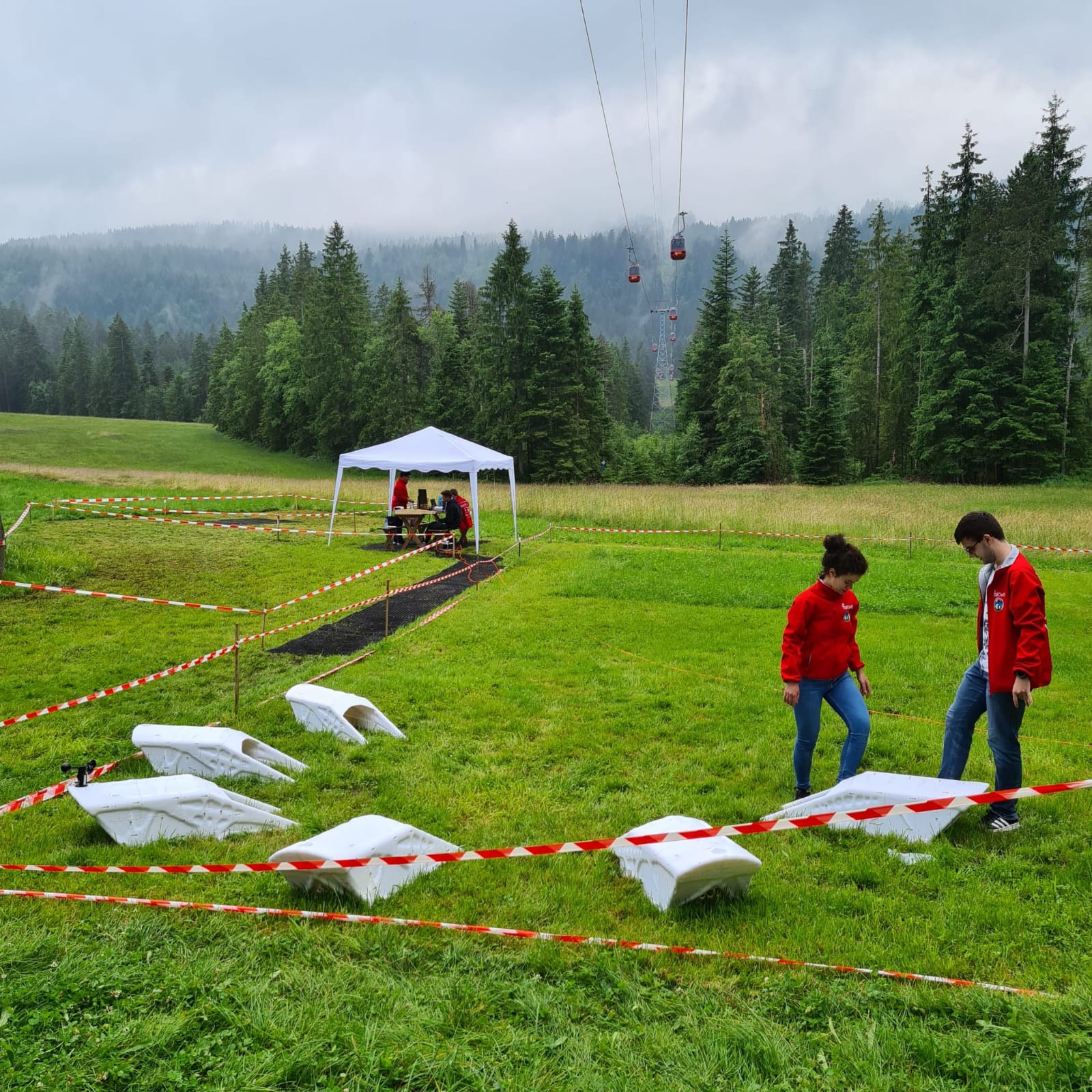
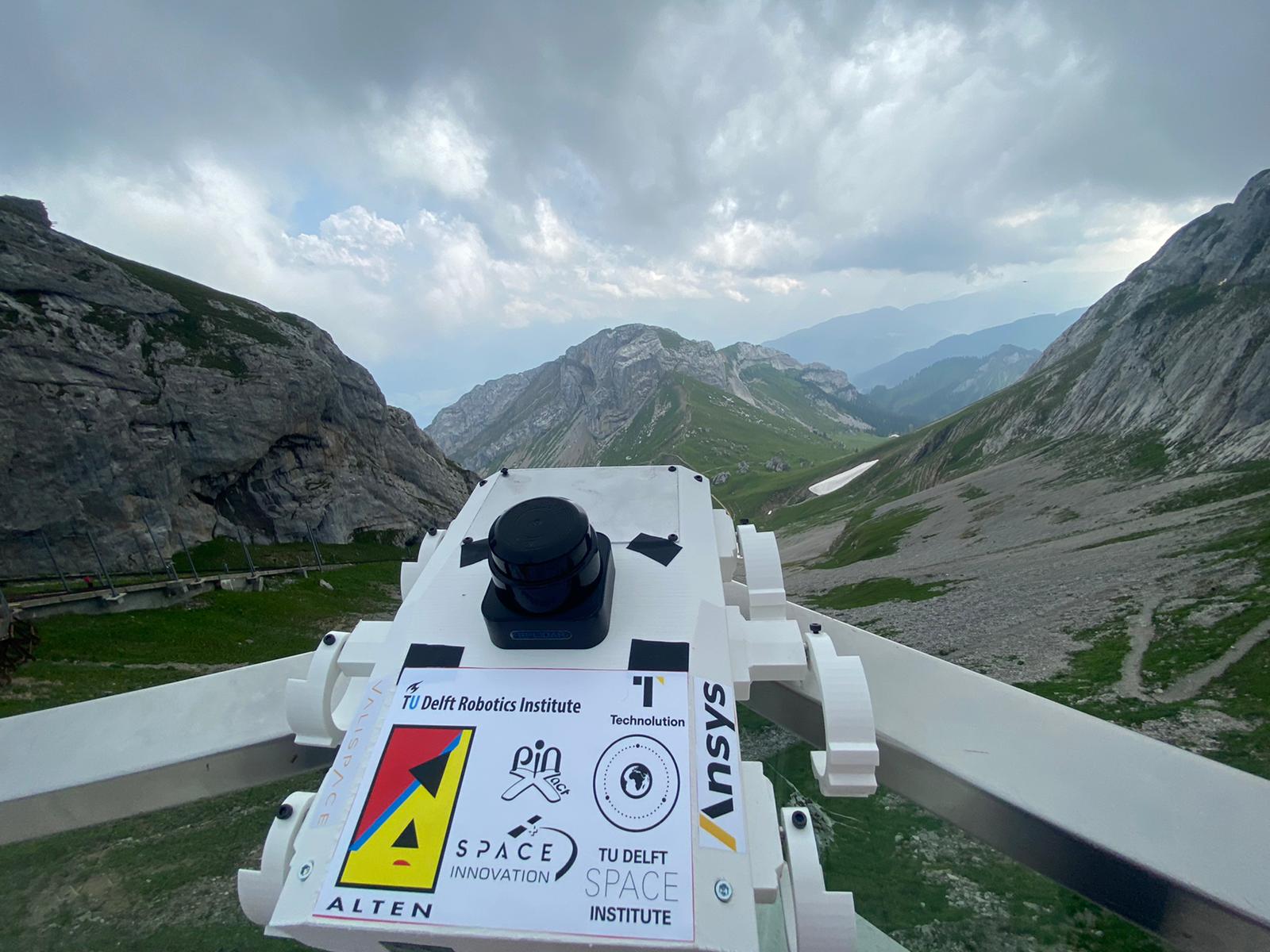
Although unfortunate, this obstacle does not invalidate the valuable experience the team gained during the Field Campaign. “Getting to the bottom of the causes of the failures is something we definitely want to do as soon as we are back,” Jillian answered to a question asked during the live Project Show. “We will carry out the mission that we planned back in Delft.”
Although unfortunate, this obstacle does not invalidate the valuable experience the team gained during the Field Campaign. “Getting to the bottom of the causes of the failures is something we definitely want to do as soon as we are back,” Jillian answered to a question asked during the live Project Show. “We will carry out the mission that we planned back in Delft.”

Celebration of innovation
IGLUNA was certainly a science and space innovation festivity. It is exceptional that despite the difficult times currently faced in the whole world, we were able to gather and connect with the other student teams, Space Innovation, Swiss Space Office, the ESA Director General, both current and former, and even ESA astronaut Thomas Reiter! Future collaboration is surely something we look forward to in the coming years.
“It taught us a very vital lesson,” Lunar Zebro’s Team Leader & Head of Operation Maneesh Kumar Verma concluded at the IGLUNA 2021 Closing Ceremony. “Everybody [in the Lunar Zebro IGLUNA team] has decided to stay in the team to finish what we started.”
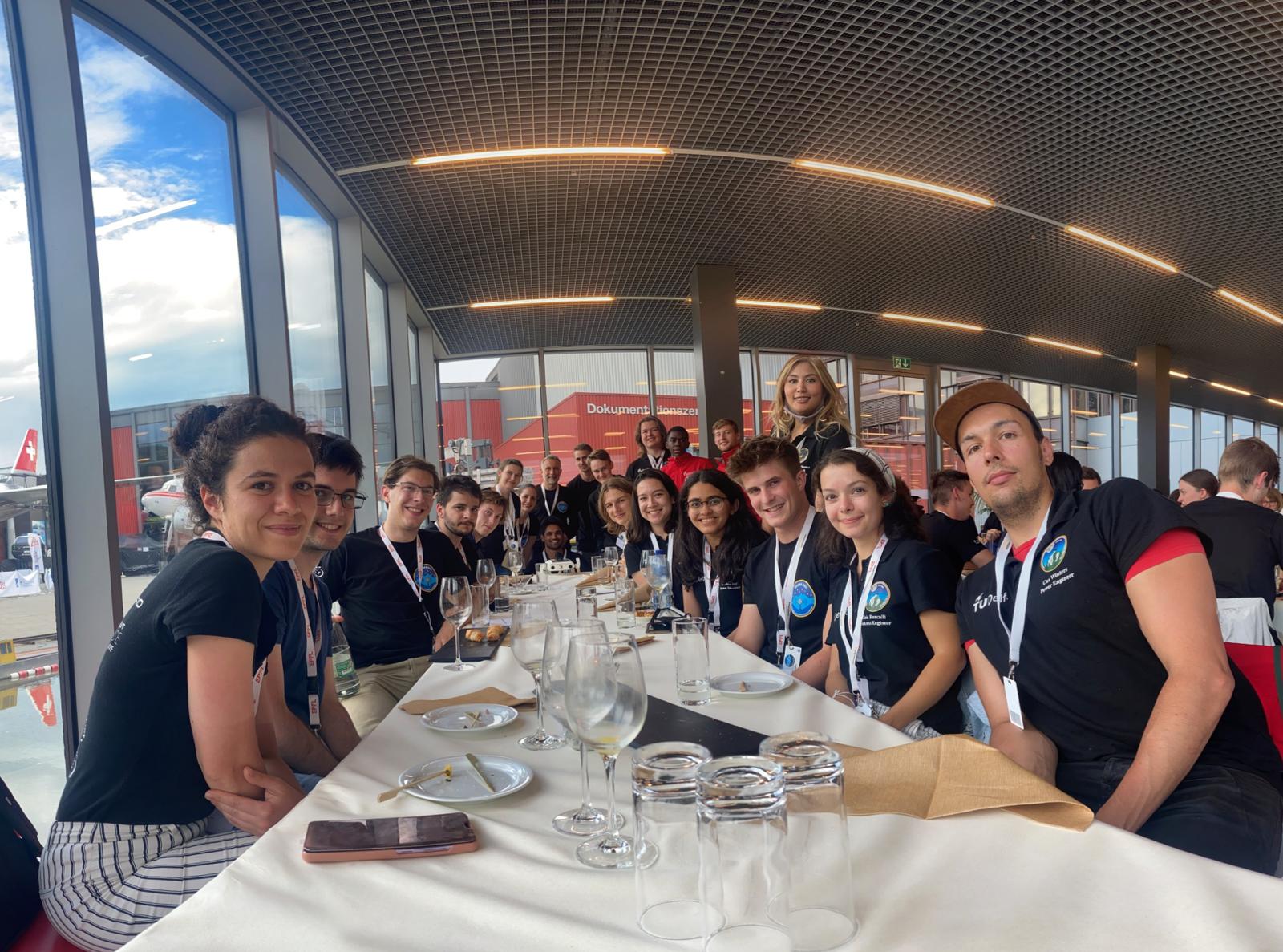
An accomplishment you can watch as well
While we have provided brief real-time updates on our progress at IGLUNA during our time in Luzern through our social media channels, it is difficult to convey via pictures and text the full extent of the team’s work. Therefore, we are grateful that Space Innovation organized the Project Show for each team, including ours. In the video below, we explain exactly what we have done and what we will be doing after IGLUNA. Have a look!
